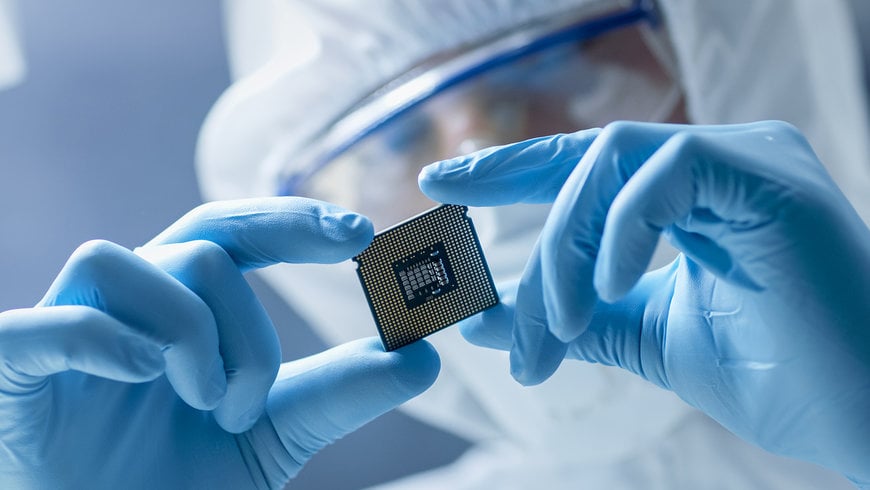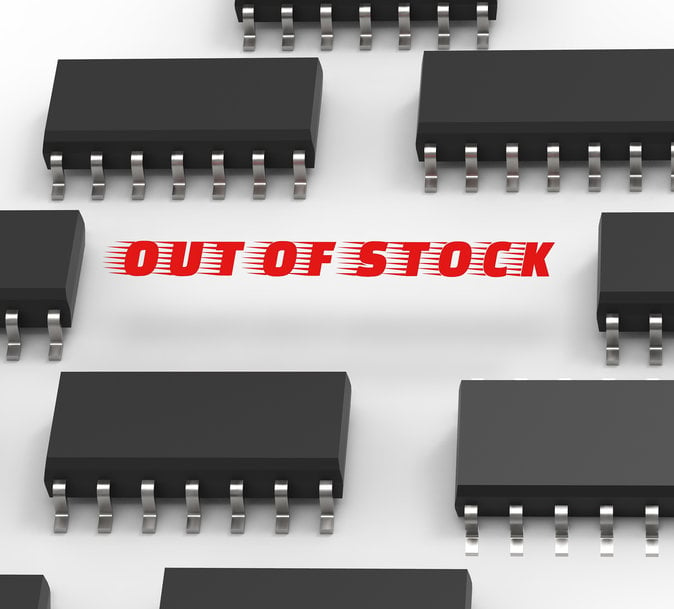www.magazine-industry-usa.com
09
'21
Written on Modified on
Learning from the global chip shortage
A lesson in resource management.

An increasing number of consumers are being impacted by the global chip shortage that currently plagues the electronics manufacturing sector. The semiconductor supply chain is unique, but there are lessons that all manufacturers can learn from its shortcomings. Here Claudia Jarrett, US country manager at industrial automation supplier EU Automation, discusses how the global chip shortage can teach us a valuable lesson in resource management.
The chip crisis that has impacted industries worldwide since the start of 2020 is bound to persist at least until the second quarter of 2022, according to research firm Gartner. The time it takes to produce a single semiconductor might increase by six months, with more complex ones requiring up to a year to be completed.
This will continue to have disastrous consequences in the production and supply of devices containing touch screens, fingerprint sensors and microcontrollers, impacting sectors as diverse as gaming, security, home appliances and automotive.
A unique supply chain
There are several socio-political issues that contributed to the chip shortage. An escalation of tensions between the US and Chinese Governments led the latter to stockpile record amounts of chips, as well as the equipment used to produce them.
Meanwhile, major semiconductor manufacturers have had to suspend production due to unforeseen circumstances. The Samsung production plant in Austin, Texas, has been impacted by recent power outages resulting from unusually cold weather, while the Renesas plant in Japan paused activities after a fire.
This happened while the COVID-19 pandemic prompted consumers and businesses worldwide to invest in technology to stay connected. The result is that demand soon surpassed supply, leading to the current situation.
The abovementioned episodes led to the exacerbation of issues that were already present well before 2020, and that have to do with the unsustainable nature of chip production. While some companies, such as Intel, design and manufacture their own chips, the cost and complexity of the process means that the sector relies on a few chip manufacturing facilities, also called foundries or fabs.
These are predominantly located in South-East Asia, with about three quarters of all global chips coming from China, Japan, South Korea and Taiwan. When it comes to more complex and advanced semiconductors, the entire global production is virtually confined to South Korea and Taiwan.
Geographical specialisation has historically led to technological excellence and has helped minimise costs for consumers, but when supply chains are so incredibly dependent on a handful of companies located in just one area, problems inevitably arise.

Diversifying
The good news is that with every challenge comes a lesson. Governments worldwide are spurring initiatives to increase semiconductor self-sufficiency and diversify the supply chain. In the US, manufacturing giants such as Amazon, Google, Apple and Microsoft have founded the Semiconductors in America Coalition (SIAC), while the EU is heavily investing in new facilities and equipment, aiming to produce 20 per cent of the global chip supply by 2030.
Manufacturers worldwide can also learn from the global chip crisis. In times of socioeconomical instability, diversifying the supply chain is key. In this sense, manufacturers might want to consider adding regional and local companies to their official supplier lists to minimise risks in case of adversities in one location.
Another good strategy is that of investing in technology that increases visibility across all nodes of the supply chain, so that when one node is impacted, manufacturers might have time to react before a dangerous domino effect occurs.
At EU Automation, we are firm believers in the diversification of supply chains. With sites in four strategic locations — the UK, the US, Germany and Singapore — and a global network of reliable partner suppliers, we can dispatch a huge variety of automation components worldwide in record times. This has allowed us to successfully navigate the pandemic without impacting our ability to help manufacturers when critical equipment breaks and downtime looms.
www.euautomation.com

